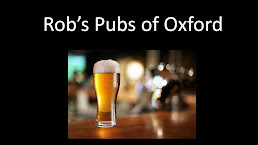Forgive me. I have banged on about the decline
in spoken British English before – but here I go again. If you are tired of the
subject then just play this video which explains
that it is all due to lager. Of course it is. Meanwhile, here’s me speaking as if from the past.
"Just ‘ere I wanna say somethin’ about when I wuz a boy
growin’ up in the Wes’ Coun’ry. Na’uraly I wan’id tuh soun’ like t’other kids. O’
course them were the days when a guy was summut tha’ you burned on bonfire night
and curay’in was summut they did in museums. It’d always bin tha’ way. ‘Course
we knew we spoke bad. Tha’ ol’ vicar now, ‘e was posh, full uv ‘aitches an’ a
bit short on ar’s. Still we’m quite the fashion now in twenny-twenny-one. Anybody
for electrocution lessons on ‘ow to speak proper like? I alwuz wannid tuh be a
teacher."
If you do not know what I am talking about, then ‘listen up’.
However, if like me you waste valuable time shouting corrections at the
unreceptive TV or radio, then you probably already know what my beef is.
“It’s Brighton not Brigh’un. Was not wuz. Twenty not twenny.
Us not uz. Been is the past participle of the verb to be, not bin. It’s Britain
not Bri’un”
“They can’t hear you, you know,” says my long-suffering
wife, long sufferingly.
“That’s not the point,” I explain pointlessly. “I’ve got to
get this out of my system.”
I then start to explain, as I sadly watch her leave the room,
that following my poor start in the world of diction I commenced a long career
in communication – both tele and not. OK, so an apprenticeship in telephone
engineering is hardly the route to becoming a BBC news presenter, but there was,
and still is, a connection between my emerging need and desire to make myself
understood and my career: still is.
By the by, I have no desire whatever to speak like the queen
or the other, so called, aristocrats and I do take a great delight in regional
accents and those who can mimic them. In truth I do not like the glottal stop
characterised by the Cockneys, but I would defend to the death their particular right
to drop ‘t’s partway through a word if they must. My surname by the
way is Walters and it must never be pronounced Wau’ers.
Speech is all about communication and understanding and, I
would also add, demands a fairly direct relation between what is written
(despite the vagaries of the English language) and what is said – except for
the Chinese. Language must evolve of course, just as we and the
circumstances in which we live evolve. But my beef is about deterioration, not evolution.
Slovenliness rather than clarity.
Why do people do it? Just to irritate people like me – no that is surely an egocentric thought. In fact I think that there are three reasons for it, maybe more, The first is
clearly emulation, just as I as a boy wanted to speak like the other kids even though
my father was a foreigner (he was Welsh!). Many of the fashionable substitutions
are imports from the USA and are by that route irresistible for some – witness the
way that ‘guy’ has replaced our many rich and varied alternatives. The other is
the drive of inclusiveness: a desire to
show sympathy or comradeship with the oppressed minorities perhaps. And the
third possibility is song lyrics: a subtle and persuasive input to a mind opened by the
song and singer.
Well, that’s got that off my chest. Better now? Not really.
Wha’ abou’ me men’al ‘elth? Just keep on taking the medicine (real ale) and
shouting at the TV Rob. I have to go out to feed the chickens now. I’ll have a
word with them, the only word that they understand – corn.















